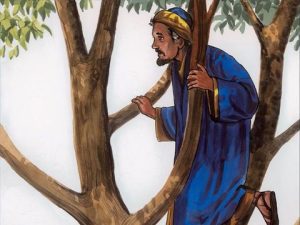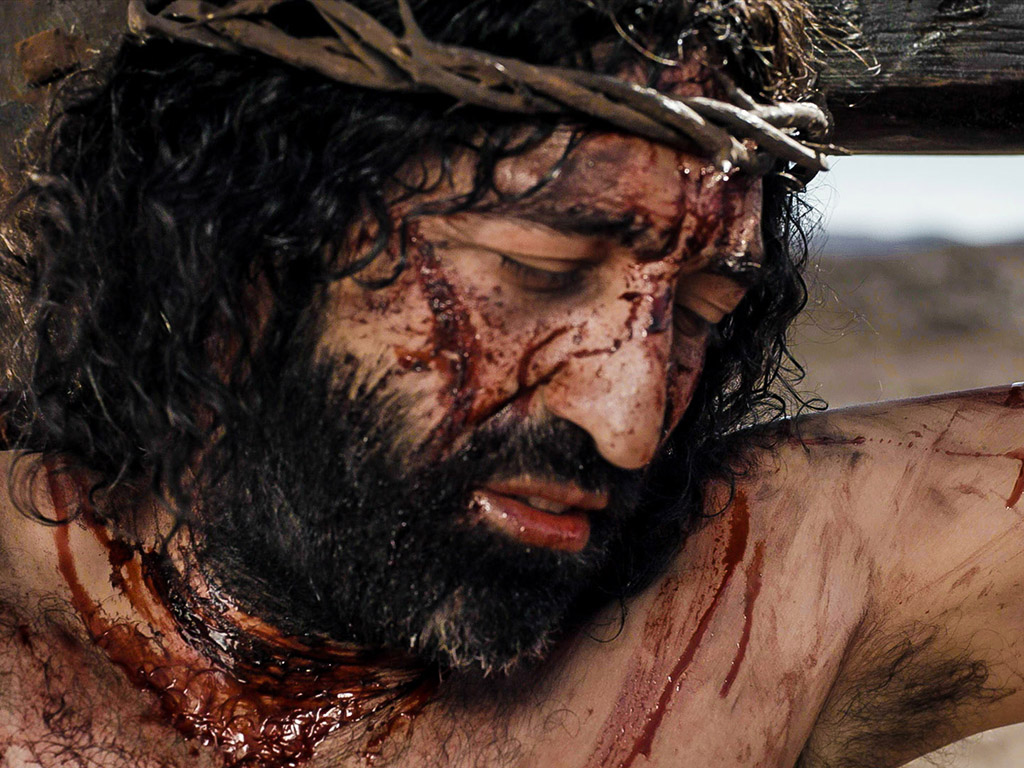Z pour Zacchaeus
He was small of stature but determined as no one else.
He knew what he wanted and… what he did not want!
He wanted to see the Man of Nazareth, and he did not want anything, or anyone, to prevent him from doing so!
He used a trick which served him well: he climbed a tree, a sycamore was there for his purpose.
He has seen, or rather… he has been seen!
He was seen, and he was challenged by the one he wanted to catch sight of.
From then on, his life was never the same again (Luke 19:1-10).
 Many of you reading these lines recall the name of this original fellow.
Many of you reading these lines recall the name of this original fellow.
Zacchaeus, yes, Zacchaeus, the man with a more than doubtful reputation in the eyes of many.
But, also, the man who has received what his visitor was offering him: salvation, nothing less!
His life of duplicity became an example of a life of honesty and generosity.
Welcoming Christ in our lives – non once only but permanently – can achieve such a transformation!
For each one of us, ‘salvation’ will take on a personalized form and will be realized from day to day.
This period of Lent, coming to an end, may have allowed us to discover this…
Note: In the following video Zachaeus, personified by Augustine Sellam, shares with us his experience of meeting the Man of Nazareth: https://youtu.be/7TIwA1YgPII?si=oifyPpVawnYhEKWX
 This situation came to my mind as I read the 2nd reading of today’s celebration (Ephesians 2:4-10).
This situation came to my mind as I read the 2nd reading of today’s celebration (Ephesians 2:4-10). This is the case, this Sunday, with the words of the prophet Isaiah telling us (Isaiah 35:1-6,10):
This is the case, this Sunday, with the words of the prophet Isaiah telling us (Isaiah 35:1-6,10): At times, we may feel that we need some encouragement in our life as Christians.
At times, we may feel that we need some encouragement in our life as Christians. “We… be able to quieten our conscience in his presence,
“We… be able to quieten our conscience in his presence, Good Friday is not the glorification of suffering, it is the exaltation of love –
Good Friday is not the glorification of suffering, it is the exaltation of love –  He was well-known, yes, he had a reputation, but not one to be envied. He was despised by his people for being a publican. As such, he was collecting the taxes from his fellow-Jews to the benefit of the hated power of occupation – the Romans. He was clever and knew how to profit from his post. He was a wealthy man and enjoyed his situation. Such was Zacchaeus (Lk.19:1-10).
He was well-known, yes, he had a reputation, but not one to be envied. He was despised by his people for being a publican. As such, he was collecting the taxes from his fellow-Jews to the benefit of the hated power of occupation – the Romans. He was clever and knew how to profit from his post. He was a wealthy man and enjoyed his situation. Such was Zacchaeus (Lk.19:1-10). And Paul, writing to the Philippians (Ph.3:8-14), says about himself: “I forget the past and I strain ahead for what is yet to come.”
And Paul, writing to the Philippians (Ph.3:8-14), says about himself: “I forget the past and I strain ahead for what is yet to come.”